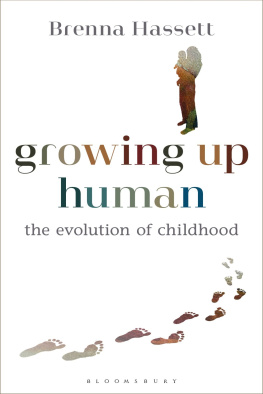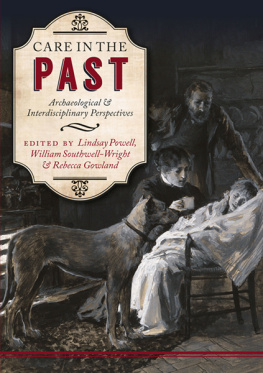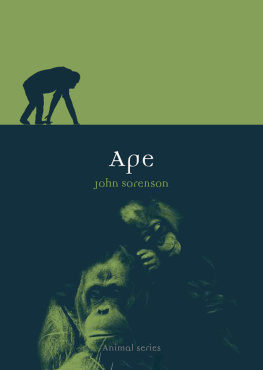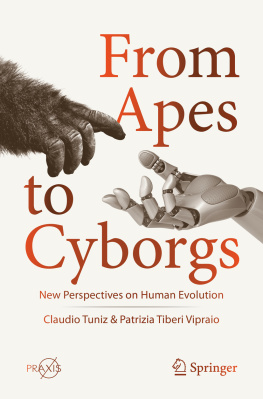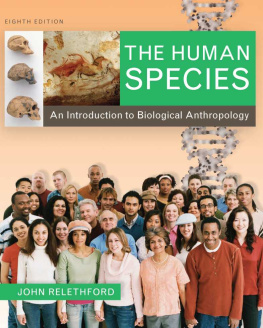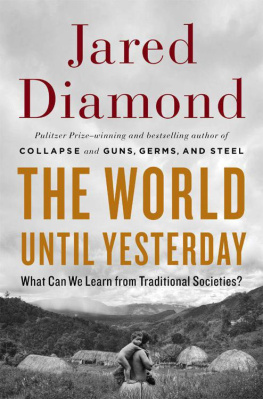
Substitute Parents
Studies of the Biosocial Society
General Editor: Catherine Panter-Brick, Professor of Anthropology, University of Durham, UK
The Biosocial Society is an international academic society engaged in fostering understanding of human biological and social diversity. It draws its membership from a wide range of academic disciplines, particularly those engaged in boundary disciplines at the intersection between the natural and social sciences, such as biocultural anthropology, medical sociology, demography, social medicine, the history of science and bioethics. The aim of this series is to promote interdisciplinary research on how biology and society interact to shape human experience and to serve as advanced texts for undergraduate and postgraduate students.
Volume 1
Race, Ethnicity, and Nation
Perspectives from Kinship and Genetics
Edited by Peter Wade
Volume 2
Health, Risk, and Adversity
Edited by Catherine Panter-Brick and Agustn Fuentes
Volume 3
Substitute Parents
Biological and Social Perspectives on Alloparenting in Human Societies
Edited by Gillian Bentley and Ruth Mace
Volume 4
Centralizing Fieldwork
Critical Perspectives from Primatology, Biological and Social Anthropology
Edited by Jeremy MacClancy and Agustn Fuentes
Volume 5
Human Diet and Nutrition in Biocultural Perspective
Past Meets Present
Tina Moffat and Tracy Prowse
Volume 6
Identity Politics and the New Genetics
Re/Creating Categories of Difference and Belonging
Edited by Katharina Schramm, David Skinner and Richard Rottenburg
Substitute Parents
Biological and Social Perspectives on Alloparenting in Human Societies
Edited by Gillian Bentley & Ruth Mace
First published in 2009 by
Berghahn Books
www.berghahnbooks.com
2009, 2012 Gillian Bentley and Ruth Mace
First ebook edition published in 2011
First paperback edition published in 2012
All rights reserved. Except for the quotation of short passages for the purposes of criticism and review, no part of this book may be reproduced in any form or by any means, electronic or mechanical, including photocopying, recording, or any information storage and retrieval system now known or to be invented, without written permission of the publisher.
Library of Congress Cataloging-in-Publication Data
/ edited by Gillian Bentley and Ruth Mace.
p. cm. (Studies of the biosocial society ; v. 3)
Includes bibliographical references and index.
ISBN 978-1-84545-106-6 (hbk.) -- ISBN 978-0-85745-641-0 (pbk.) -- ISBN 978-1-84545-953-6 (ebk.)
1. Foster parents. 2. Child care. I. Bentley, Gillian R., 1957 II. Mace, Ruth.
HQ759.7.S83 2009
306.874dc22
2009015808
British Library Cataloguing in Publication Data
A catalogue record for this book is available from the British Library
ISBN 978-1-84545-106-6 hardback
ISBN 978-0-85745-641-0 paperback
ISBN 978-1-84545-953-6 ebook
Contents
Sarah Hrdy
Gillian R. Bentley and Ruth Mace
Nancy G. Solomon and Loren D. Hayes
Rebecca Sear and Ruth Mace
Karen L. Kramer
Claudia R. Valeggia
Alma Gottlieb
Gillian Paull
Berry Mayall
Helen Penn
David Howe
Emma Lycett
Lorraine van Blerk and Nicola Ansell
Mark V. Flinn and David Leone
Joachim Bensel
Jay Belsky
Margaret Robinson, Lesley Scanlan and Ian Butler
PROLOGUE
Allomothers across Species, across Cultures, and through Time
Sarah B. Hrdy
A New Paradigm Emerges
Mother mammals are guaranteed to be on hand at birth, and after months of gestating, are hormonally primed to respond to infantile signals. Maternal commitment to young is the best single predictor of their survival. No wonder mothers have played a key role in evolution. For two hundred million years, till the very recent discovery of pasteurized milk and baby bottles, breast milk was, so far as baby mammals were concerned, the only brand in town and mothers the only source of safety (Bowlby 1969). It would be hard to overstate the importance of the emotional bonds between baby mammals and their mothers (Carter et al. 2005). That said, Western cultural traditions have gone beyond these facts.
Moralists and psychologists alike focus on the presumed naturalness of parental and especially maternal care, to the exclusion of considering care by others. Matricentric thinking has long been deeply entrenched in scientific as well as popular world views. It was in order to highlight the naturalness of maternal care that in 1735 taxonomist Carolus Linnaeus identified all members of the class Mammalia with milk-secreting glands, a trait possessed only by females. Linnaeus reasons for selecting mammae had more to do with his personal convictions about womens roles than with the usefulness of teats as taxonomic tools, since other traits would have worked better (Schiebinger 1995). But Linnaeus lived at a time when many European women resorted to the use of wet nurses, and as an ardent promoter of maternal breastfeeding, Linnaeus was making a point about womens natural role. In this volume, Helen Penn and Alma Gottlieb each discuss how such moralistic presumptions have spilled over into supposedly dispassionate and objective assumptions underlying psychological theories of child development.
Large literatures in developmental psychology have been built upon the presumption that throughout hominid evolution, mothers were exclusively responsible for nurturing offspring, and that, like chimps, baboons and macaques, early human mothers remained in nearly continuous skin-to-skin contact with their babies (Bowlby 1969; see update and overview in Konner 2005). In the process, we grossly underestimated the sustained effort it requires to rear healthy human children. Anthropologists calculate that in a hunter-gatherer setting it may take around thirteen million calories, along with incalculable hours and opportunity costs, to nurture a child from birth to nutritional independence around age eighteen or older (Kaplan 1994). Since this is far more than a gathering woman by herself, particularly one with other children, can provide, it was assumed that shortfalls in the material needs of woman the nurturer and her children were made up by man the hunter (Lovejoy 1981). In spite of recent criticisms of the feasibility of this Pleistocene scenario (Hawkes 2001), it remains widely assumed that anything less than exclusive maternal care is out of step with Nature, a modern deviation from what Bowlby deemed humankinds Environment of Evolutionary Adaptedness. Yet matricentric models are far from the whole story. As Nancy Solomon will explain in this volume, some mammals, including humans, are cooperative breeders, where group members other than genetic parents help to rear young. Ancestral human populations almost certainly fell among those species with shared care.



